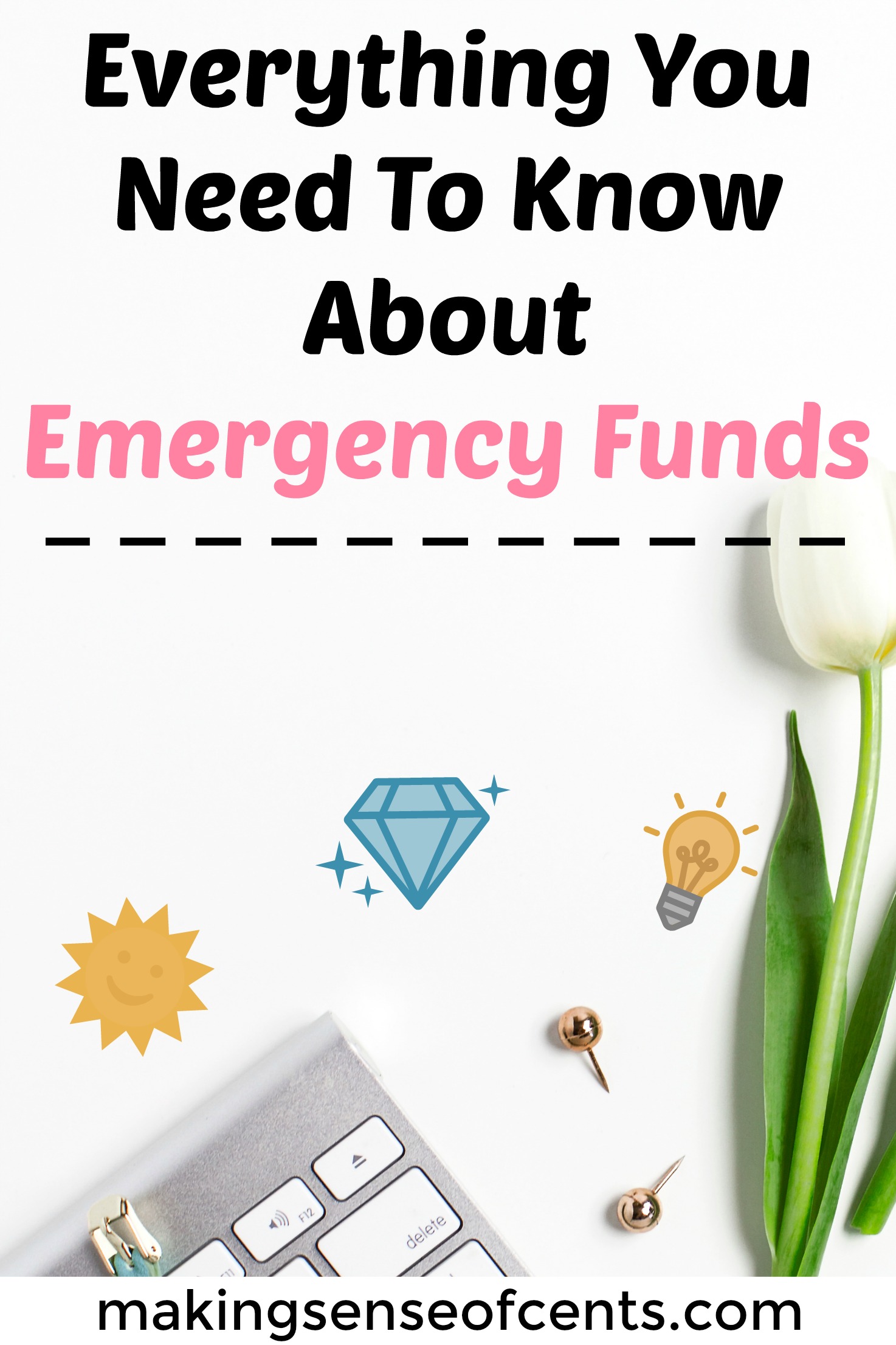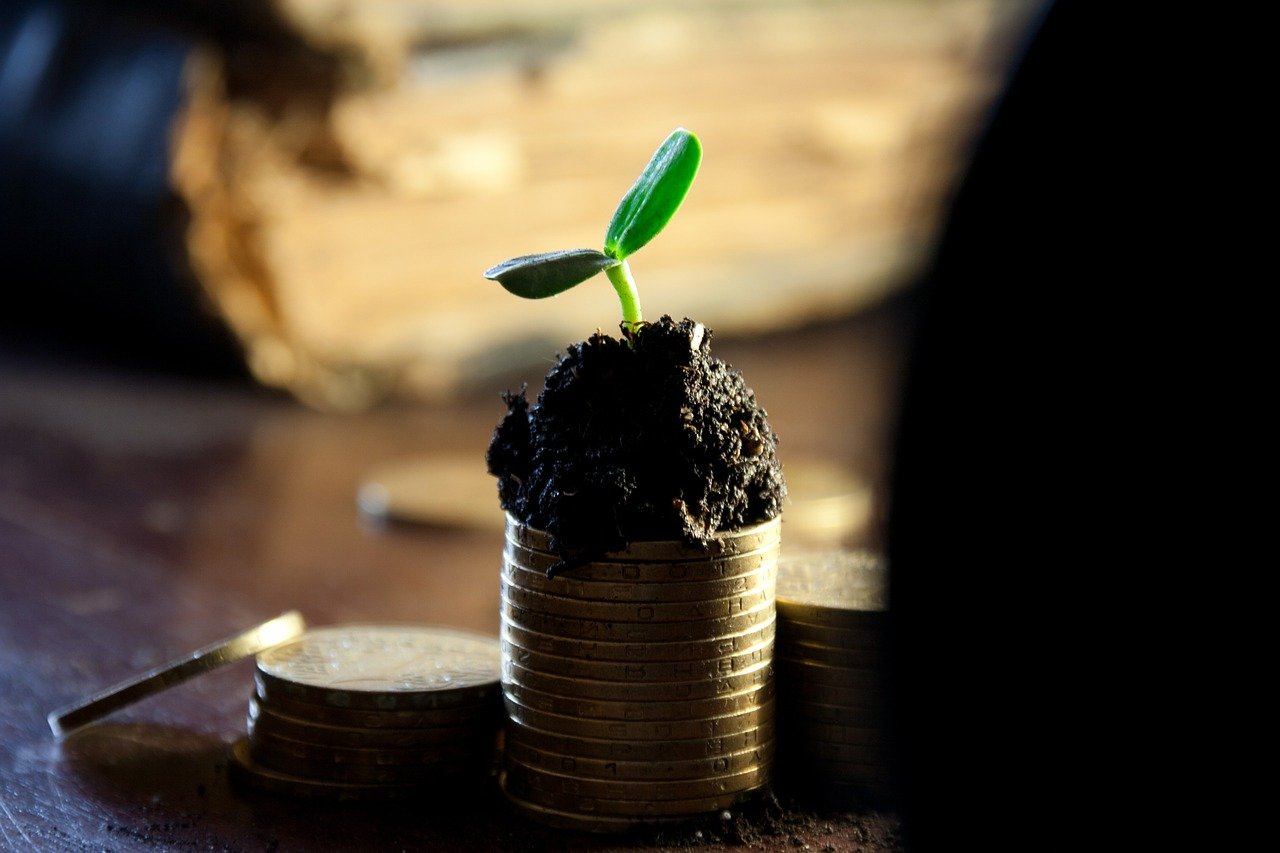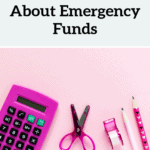 An emergency fund is something I believe everyone should have. However, according to a report by Bankrate.com, 26% of Americans have no emergency fund whatsoever for when they need money fast.
An emergency fund is something I believe everyone should have. However, according to a report by Bankrate.com, 26% of Americans have no emergency fund whatsoever for when they need money fast.
According to this same report, only 40% of families have enough in savings to cover three months of expenses, with an even lower percentage having the usually recommended six months worth of savings.
This is frightening to me, as having an emergency fund can greatly help a person get through tough parts in life.
For us, we have a 12 month emergency fund.
I’ve always been open about this. I am a rather big worrier about things, and having a large emergency fund gives me peace of mind, especially since we are self-employed and our income can vary from month to month.
Even if you aren’t self-employed, there are many other reasons to have a fully-funded emergency fund:
- An emergency fund can help you if you lose your job. No matter how stable you think your job is, there is always a chance that something could happen where you may need money fast. What would you do if you lost your job and didn’t have an emergency fund?
- An emergency fund is wise if you do not have great health insurance. This is another reason why we have a well-funded emergency fund. We do not have the greatest health insurance, with our deductible being over $12,000 annually. Having an emergency fund can help protect us if something were to happen to either of us.
- An emergency fund is a good idea if you have a car. You just never know if it may need a repair.
- An emergency fund is a need if you own a home. One of the lucky things that homeowners often get to deal with is an unexpected home repair. Having an emergency fund can help you if your basement floods, if a hole in your roof forms, and more.
- An emergency fund can protect you in many other areas as well. This can include if you have a medical cost for your pet, if you have to take time off work for something, you need to go somewhere far to visit someone who is sick, and so on. The list of reasons for why you might need an emergency fund can be a long one.
Emergency funds are always good to have because they can give you peace of mind if anything costly were to happen in your life. Instead of building onto your stress because of whatever has happened, at least you know you can afford to pay your bills and worry about more important things.
An emergency fund is also wise to have because it can help prevent unnecessary debt. There are too many people out there who count on their credit cards as their emergency fund and that is not a good idea. It can lead to debt spiraling out of control because of high interest rates.
Below is what you need to know about emergency funds for when you need money fast.
Should you have an emergency fund if you are in debt?
Yes! I still think you should have an emergency fund even if you have debt. If you have debt, then the usual recommended amount is to have $1,000 in your emergency fund before you start paying down your debt.
After that amount, you need to determine what you are comfortable with.
How much should be in an emergency fund?
The next question I often hear is “How much should be in an emergency fund?” How much money you decide to keep in your emergency fund is dependent on your specific situation. If you don’t have debt, then I usually recommend at least six months of expenses.
For us, I like to have one year of expenses saved since we are self-employed, own a house (although that will be changing soon), we have a high deductible health insurance plan, and for a few other reasons. There are many reasons for why a person might need money fast, and you need to analyze your specific situation.
Where should you keep an emergency fund?
Your emergency fund is there so that when you need money fast, you can use it. Due to this, you will want to put your money in a place where you can easily take it out. This means you do not want to be penalized for taking the money out and you probably don’t want to invest it in a high risk investment as you don’t want to lose it either.
I prefer keeping an emergency fund in a low risk savings account, such as any basic savings account that you will find at a bank. This way it is easily accessible in case anything were to happen and I needed the money quickly.
You can also save your emergency fund in a CD and/or money market account so that you can earn a little in interest. Keep in mind though that you might earn more in interest because there is a more risk.
How can I save enough money to fully fund my emergency fund?
After reading all of the above, I bet you cannot WAIT to start your emergency fund 🙂
It may be hard in the beginning to start saving for your emergency fund, but everyone has to start somewhere and it’s always best to be prepared for when you need money fast. You can save money for your emergency fund by setting out a certain amount out of each paycheck, or you can work towards making extra money so that you can build up your emergency fund even quicker.
Do you have an emergency fund? Why or why not? How much do you keep in it?


Leave a Reply
Great post! It’s always surprising how many people have never thought of having an emergency fund.
My mum always told me I should have at least 6 months worth of expenses readily accessible for emergencies, and that’s what I try to stick to. It has been tricky recently as we have bought a home, a car and a dog all within the space of 2 months, so the amount we’d need in an emergency has rocketed!
x
Thanks Anna!
Michelle covered it all. What else do I need to know about emergency fund? Hmm.. The higher amount we put in the emergency fund the better. That’s what I do.
Good job!
We do have an emergency fund, although it’s closer to the $1,000 recommendation, than 4-6 months of expenses. We keep it in a money market fund, so it earns a tiny amount of interest. Have such a small buffer – especially since we also have a lot of debt – is stressful to me. In a stroke of very good luck, an elderly family member has decided to give away some of his money, and I’ll be receiving several thousand dollars shortly. While I’m temped to use it to pay off debt, it’s all going into our emergency fund. We will allow ourselves to use some of it if we have a large tax bill, but the rest we’d plan to leave there.
That’s great that you can beef up your EF a little more. Sounds like a good plan.
I do have one, although it’s currently small ($1500 — I’m planning to up that to $5000 over the course of this year) but honestly, I kind of hate it. I’m trying to get over that, because I know it’s a good idea for all the reasons you lay out, and I think I have enough willpower to stay strong here. But I fundamentally, emotionally, don’t like having money sitting in an accessible savings account. I constantly feel tempted to do something with it (feed my IRA fund, go on vacation).
You might want to think about switching your EF to a different bank. That way you won’t easily see it!
We keep a large emergency fund because I am self-employed and we own rental properties. Having multiples furnaces and air conditioners is a good reason to have extra money on hand! I like to have more than I need whenever possible.
Yes, another great reason to have an EF!
After paying down all my debt, I’ve been able to re-build my EF to about 6 months worth of expenses. I love having it there! After living pretty precariously for a while, it is so nice having some back up.
I believe that an emergency fund is solely for major emergencies – I lose my job, or a major health crisis interferes with my ability to earn money. It covers the basics of living only. I have “planned spending” accounts for other expenses that I know are coming – this would include anything related to owning a house or car, an emergency plane ticket home in case something happens etc. If you have the income to be able to do this, I think it helps stop you from spending that EF…it’s a slippery slope and you might find yourself justifying all sorts of things as emergencies.
Good job Heather!
I’ve kept an emergency fund of a few thousand in cash savings for as long as I can remember. Was very thankful to have had it last year when the central heating system packed in just at the British winters started. Because of the quick and easy access to cash I was able to have a plumber out the next day to do all the required repairs and get the maintenance up to a level that it hopefully won’t need looking at again for a decade.
Good job!
We have an emergency fund! We have a 6 month fund today, while getting out of deb we maintained a $1k e-fund and it covered all that life had to throw at us.
Good job Brian!
I have about 6 months worth of expenses in my savings account for my EF. I’m doing my darnedest not to look at it as I buy houses (“it’s an extra bit of money I can use for downpayment…”) since I’d still like a cushion for all the house-related emergency costs that will be coming up.
Good job on having 6 months!
I took Financial Peace University through my church last year, and the first thing Dave Ramsey said to do was save a $1000 emergency fund. I’m still working on this, but as I’ve saved, the money has come in handy just for what it’s supposed to. It’s great having it, just not so great having to build it back up.
Yes, it is definitely great having it.
I believe a large emergency fund is essential to someone who is self-employed. That paycheck is usually less guaranteed than us in corporate world, I said usually… :). The large emergency fund is a great way to protect yourself from lumpy income, or a downturn in your business. But for individuals who have a pretty consistent income via payroll wages, I think most can get away with a much smaller emergency fund as long as they can access some of that money via after-tax accounts for example.
But, you never know if a medical issue will come up that will prevent you from working. You just never know!
Building an emergency fund is literally step one for just about all of my clients. I do not let them rest until they have that safety net in place. Once it is, then we focus on other financial goals, but more people get into financial challenges from NOT having an emergency fund more than any other financial item as far as I am concerned.
Yes, an EF is SO important. Too many people skip over it.
I don’t have an emergency fund. My income comes from so many different places, it’s virtually impossible they even dry up (in a relatively short period of time) to the point where I can only cover my living expenses. Income diversification is my emergency fund, I guess.
Note: I’m still on my parents insurance plan which has an extremely low deductible. I have two vehicles so if one gets totaled, I’m fine while insurance sorts it out.
That’s nice that you are still on a parent’s insurance plan. Neither of us has been on a parent’s insurance since we were 18 so we’ve always had to be more careful.
Great post! So many of my friends don’t have an emergency fund, and the main reason is “we’re young, we don’t need one” – not sure how that makes any sense.
We have an emergency fund, even though we’re in debt and don’t own a home. We can put a little in each month and try to build it so that if something does come up that we need it for, we don’t go further into debt. It only makes sense to me 🙂
Thanks J!
We’re a single income family with a house and car, so I definitely want us to be prepared for emergencies. We set aside money in our budget each month for home and car repairs. For our emergency fund, we keep a big cushion in our chequing account, then we invest the rest where we could access the money in a couple days (our line of credit/credit cards could bridge the gap during those couple of days). We’re comfortable with this setup for now. It gives us piece of mind to know that we could deal with life’s normal emergencies.
Good job Emily!